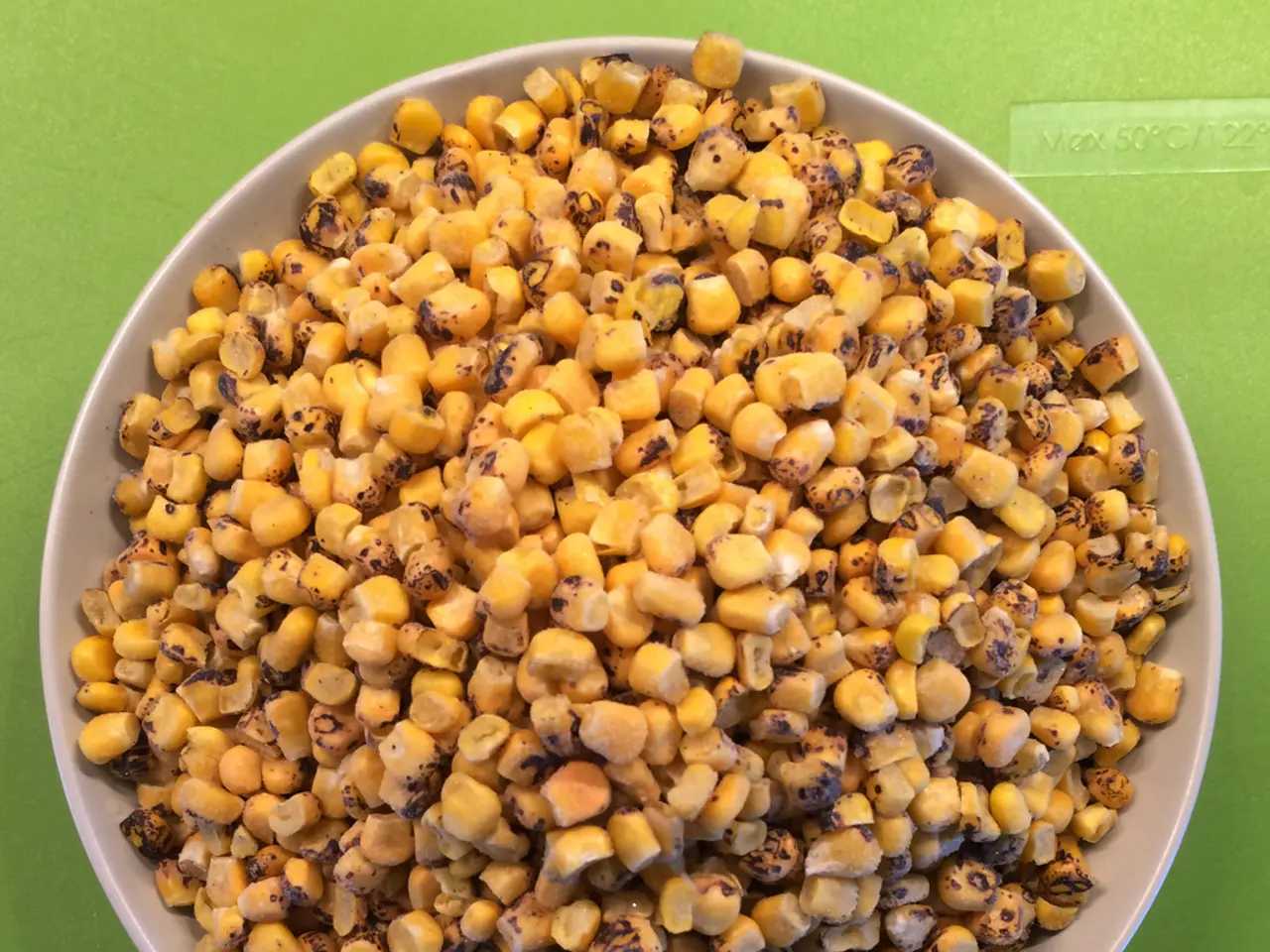Farmer struggles due to allegations linking seed oils to health risks among Americans
Hey there! Let's bust some myths about seed oils. Robert F. Kennedy Jr. claims that seed oils like soybean, corn, and sunflower are poisoning Americans. Most of the medical community rejects this notion, but you gotta admit, it's causing a headache for farmers who grow these crops. So, what's the truth?
First off, let's clear up the ingredients in these oils. They're made from pressing seeds and commonly referred to as vegetable oil. However, due to some negative propaganda, they're now often called seed oil. Now, RFK Jr.'s Make America Healthy Again movement has released a documentary slamming seed oil, along with fluoride and farm chemicals. Dr. Cate, star of the video, says seed oils are the source of the most toxins and are worse than glyphosate, herbicides, and pesticides combined.
But wait a minute! The American Heart Association, the Mayo Clinic, and numerous other health advocates disagree. They've been pointing to decades of studies showing that seed oils reduce bad cholesterol and help stave off heart attacks and strokes.
Now, it's true that seed oils are used in deep-fried foods and high-calorie, processed snacks. That stuff is unhealthy, and seed oil does suffer a bit of guilt by association. But if we're talking science, it's the processed junk that's the real culprit, not the seed oil itself.
Take Phillip Stegner, for example, the general manager of an upscale bakery and cafe, Billie's Grocery, in Kansas City. He says, "We've had a lot of people come in here and be like, are you guys totally seed oil free? I'm like, no, but we have a very big emphasis on using healthy fats." Even burger chain Steak 'n Shake is switching to butter in sauces and now sells bacon double cheeseburgers with fries that are cooked in beef fat or tallow, not seed oil.
But the anti-seed oil trend is reaching farmers too. Take Cameron Pierce, who operates a sunflower farm in Central Kansas, or Tim Mikelson, who grows canola in North Dakota. Both have seen some impact on their sales, and they're frustrated. Mikelson says, "The MAHA movement is kind of been frustrating for me to watch because those decisions are based off of fear, speculation, and information that is not backed by science."
So there you have it. The scientific consensus agrees that seed oils are safe and beneficial for health when consumed moderately as part of a balanced diet. It's essential to ignore misinformation that lacks robust scientific backing. Stay healthy, folks!
- The American Heart Association, the Mayo Clinic, and numerous health advocates disagree with Dr. Cate's claim that seed oils are the source of the most toxins and are worse than glyphosate, herbicides, and pesticides combined.
- Phillip Stegner, the general manager of an upscale bakery and cafe, Billie's Grocery, in Kansas City, emphasizes using healthy fats in his kitchen, including seed oils.
- Even burger chain Steak 'n Shake is switching to butter in sauces and now sells bacon double cheeseburgers with fries that are cooked in beef fat or tallow, not seed oil.
- Cameron Pierce, who operates a sunflower farm in Central Kansas, and Tim Mikelson, who grows canola in North Dakota, have seen some impact on their sales due to the anti-seed oil trend, which they find frustrating since it isn't based on science.
- It's essential to ignore misinformation that lacks robust scientific backing and consider the scientific consensus, which agrees that seed oils are safe and beneficial for health when consumed moderately as part of a balanced diet.







